The Community Resilience Model (CRM) is a training developed by the Trauma Resource Institute (TRI) to help communities build resilience in the face of trauma and adversity. The CRM is based on the idea that resilience is not an individual trait, but a collective capacity that can be developed and strengthened within communities.
The CRM is a comprehensive training that includes a range of strategies and interventions that can be used to build resilience at the community level. These strategies are organized into four main categories:
The CRM is a comprehensive training that includes a range of strategies and interventions that can be used to build resilience at the community level. These strategies are organized into four main categories:
- Protective factors: Protective factors are the strengths, resources, and capacities that communities can draw on to build resilience. These may include social support, positive relationships, access to resources, and community engagement.
- Resilience skills: Resilience skills are the skills and strategies that individuals and communities can use to cope with challenges and adversity. These may include problem-solving, communication, and collaboration.
- Healing practices: Healing practices are interventions and activities that can help individuals and communities heal from trauma and adversity. These may include therapeutic interventions, support groups, and cultural and spiritual practices.
- Systems change: Systems change involves addressing the structural and systemic factors that can contribute to trauma and adversity. This may involve working to create more equitable and supportive systems and policies, or advocating for change at the community, state, or national level.

